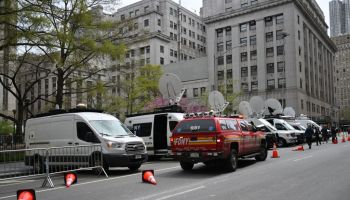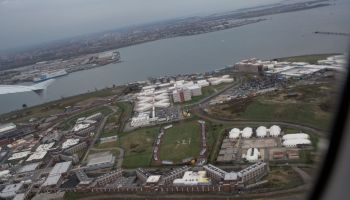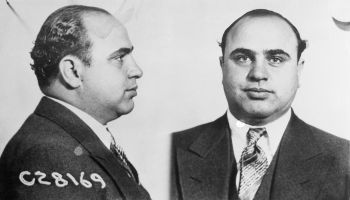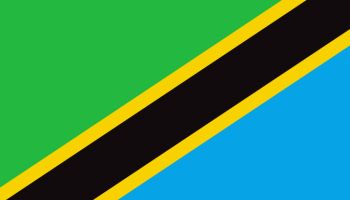VIA THE WASHINGTON POST:
The former head of the D.C. taxi commission participated in a long-running bribery scheme that sought his influence to obtain lucrative taxi licenses, federal authorities allege in recently unsealed court papers.
The accusations appear in an FBI affidavit seeking permission to search the home of Causton Toney, chairman of the D.C. Taxicab Commission from 2005 through early 2007.
Toney, 55, has not been charged with a crime, and his attorney said the former official has done nothing wrong.
The court papers and another recently unsealed court document provide the most detailed look yet into a two-year investigation that has resulted in 39 arrests of people in the taxi industry. A D.C. official, Ted G. Loza, the former chief of staff to a D.C. Council member, also has been charged.
The documents reveal that the investigation started in 2007, when the newly appointed chairman of the taxi commission, Leon J. Swain Jr., was approached by Yitbarek Syume, a powerful figure in the taxi industry.
Syume wanted Swain to approve licenses for new taxi companies and offered the commissioner $20,000, an FBI agent alleges in an affidavit seeking approval from a judge to search Toney’s home.
Swain, a former D.C. police officer, reported the meeting to authorities and soon was working as an undercover informant.
Syume and two other men were indicted on charges of giving Swain more than $200,000 to obtain taxi company licenses during the undercover operation. The men hoped to obtain as many licenses as possible in anticipation of a moratorium on issuing licenses, prosecutors have said.
Authorities have not indicated why they raided Toney’s house Oct. 2. He does business with Syume but is not named in the indictment. In the newly unsealed court papers, an FBI agent says that wiretaps and other recorded conversations link the former taxi commissioner to the conspiracy.
In November 2007, Toney told Syume in a phone call that he had talked to Swain and that Swain had told him that he “wants us to keep pushing ahead . . . to get this thing done so — I’m going to do that,” the affidavit says. The agent wrote that Toney’s comments are a “possible reference to completing their scheme.”
By this year, Swain had given Syume and the others numerous licenses, the FBI said, but the taxi commissioner had not officially activated them.
The conspirators wanted him to put the names of at least some of the companies on the D.C. government Web site to give them a veneer of legitimacy, the FBI agent wrote.
“If they don’t see something that they thought they were investing in, they think they’ve been robbed,” Toney told Swain during a meeting in May, according to the affidavit.
Toney, a lawyer, did not return a phone message seeking comment. His attorney, Brian Lederer, said his client “is not linked to any criminal conspiracy in any way, shape or form.” He said Toney is cooperating with authorities.
“He wasn’t involved in it,” Lederer said, calling the search warrant a reasonable request to look for evidence.
By July, Toney, Swain and Syume had agreed to post the names of six companies on the D.C. Web site.
Toney and the others “have been involved in attempting to illegally obtain and subsequently legitimize company licenses from Mr. Swain,” the agent wrote.
But the transcripts also raise questions about the extent of Toney’s participation. In 2007, the affidavit alleges, Swain complained to Toney that he wasn’t getting his payments from Syume on time.
“Okay,” Toney responded, according to the affidavit. “I didn’t know what was going on. I didn’t even know that was going on at all. Okay. I’ll just tell him to get his act together.”
Other newly unsealed search warrants indicate that the FBI first came across Loza, the council staffer, in 2007 when agents intercepted conversations between him and another member of the taxi conspiracy, Abdulaziz Kamus.
In a November 2007 phone call, Loza asked Kamus whether he could “raise a little money for us to go on this trip” to El Salvador. The next day, Kamus handed Loza $500 for the trip, the FBI alleged.
By the next year, the FBI said, Kamus had arranged for Loza to accept about $3,500 for a trip to Ethiopia from an undercover FBI agent posing as a taxi investor, the court papers say.
Kamus became an FBI informant in June, the court papers say. He gave Loza $1,500 during two meetings, federal prosecutors have said. Kamus wanted help pushing legislation that was beneficial to him and others in the taxi industry, prosecutors have said.
Loza’s boss, council member Jim Graham (D-Ward 1), is chairman of the committee that handles the issue.
Loza’s attorney, Pleasant Brodnax, declined to comment Thursday.
In the court papers, an agent wrote that a District-based advertising firm, Prisma Communications, paid for Graham to fly to El Salvador last year.
Graham said that he knew a company had financed the trip but that it had no business with the city. He has denied any wrongdoing. “I am not a target of this investigation,” he said Thursday.
- Egypt: Entertainment, Food, Languages, Places To Visit + More
- Libya: Entertainment, Food, Languages, Places To Visit + More
- South Sudan: Entertainment, Food, Languages, Places To Visit + More
- Algeria: Entertainment, Food, Languages, Places To Visit + More
- Tunisia: Entertainment, Food, Languages, Places To Visit + More














